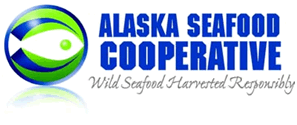Pacific Fishing, Dutch Harbor Report, December 2015
By Jim Paulin
Economic development: Despite factory trawler opposition, Adak has won guaranteed minimum amount of Pacific cod each year.
Located some 350 miles west of Dutch Harbor, Adak is a former Cold War military outpost struggling to remake itself as a civilian town.
The 5,000 metric tons of cod could help the local fish-processing plant reopen.
The North Pacific Fishery Management Council approved the allocation at its October meeting in Anchorage.
“It provides a level of certainty,” said Adak City Manager Layton Lockett.
The plant needs federally regulated fish in addition to state-waters cod to survive, he said.
While the council action doesn’t specify exclusive rights for Adak, it does impose fishing and delivery requirements for cod west of 170 degrees longitude, where the only shore plant is at Adak.
“The city must have a sustainable shore-based processing facility in order to remain viable,” Lockett said in a Sept. 28 letter to the council. “Our community relies on ‘fish and fuel’ to generate economic activity, and the truth is one does not also exist without the other.”
Seattle-based Icicle Seafoods previously operated the Adak plant but exited in April 2013, citing “regulatory uncertainty,” among other factors.
The city bought the processing equipment at auction to keep it on the island.
There was no cod processed in Adak this year. Adak Cod Cooperative last operated in the plant during the 2014 cod season.
The cooperative has since shut down and sold the processing equipment to another company, Premier Harvest, Lockett said.
It is not certain that the new company will process cod next year, he cautioned.
Dave Fraser, of the Adak Community Development Corp., said 5,000 tons is “the minimum amount Adak needs from the federal fishery for a processor to be viable.”
Groundfish Forum, a lobbying group for factory bottom trawlers, condemned Adak’s request.
“The proposed action would disadvantage catcher-processor and mothership operations that have historically fished for cod in the Aleutian Islands,” Chris Woodley, the group’s executive director, said in a Sept. 29 letter to the council. “The proposed action is clearly intended to provide an economic benefit to the processing facility at Adak, and if it is developed, a processing facility in Atka”
Matthew G. Upton, an attorney for trawl company U.S. Seafoods, likewise opposed the Adak allocation.
“The council should shelve this unauthorized and unnecessary action,” Upton wrote.
